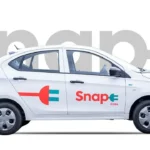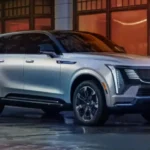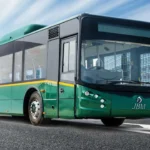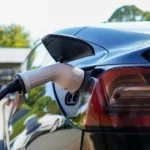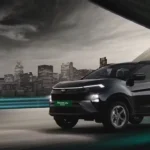The wave of electrification sweeping through India’s transportation sector has prompted ride-hailing behemoths like Uber and Rapido to explore partnerships with electric two-wheeler manufacturers, signaling a shift towards eco-friendly bike-taxi operations in compliance with stringent regulations enforced by states like Karnataka and Delhi NCR.
Both Uber and Rapido are actively engaging with industry players such as Zypp and Bounce to expedite the transition of their bike-taxi fleets to electric vehicles. Zypp Electric, in particular, has inked substantial agreements with Rapido and Uber to facilitate the integration of EVs into their respective two-wheeler fleets, reaffirming the industry’s commitment to reducing carbon emissions.
Akash Gupta, co-founder and CEO of Zypp Electric, emphasized the company’s pivotal role in deploying approximately 100,000 EVs to support Rapido and Uber in achieving their ambitious net-zero emission targets.
Meanwhile, Bounce Infinity, a prominent EV two-wheeler manufacturer, has also received requests from fleet partners to supply electric vehicles to companies like Uber and Rapido. Vivekananda Hallekere, CEO of Bounce Infinity, highlighted the company’s collaboration with various mobility firms, including delivery partners like Dominos.
Another EV two-wheeler manufacturer based in Ahmedabad revealed receiving requests from fleet partners, particularly Rapido, to supply EV bikes for their operations. The company, while remaining anonymous, disclosed plans to collaborate with financiers to facilitate drivers’ procurement of bikes at reduced upfront costs.
While startups like BluSmart and Lithium are emerging in the four-wheeler EV segment, established ride-hailing firms are expediting the transition to electric in their bike-taxi operations. Ola Cabs, for instance, announced its decision to resume bike taxi services exclusively with electric scooters in Bengaluru, procuring EVs from Ola Electric.
Bhavish Aggarwal, founder and MD of Ola, expressed openness to exploring partnerships with local manufacturers for EV procurement, highlighting Ola Electric’s significant manufacturing capabilities.
Similarly, Uber CEO Dara Khosrowshahi emphasized the potential of the two-wheeler and three-wheeler segments in India, expressing a commitment to partnering with Indian companies to make affordable electric vehicles accessible to the masses.
In a bid to comply with evolving regulations, ride-hailing firms are also exploring avenues for converting existing internal combustion engine (ICE) vehicles to hybrid or fully electric models. Green Tiger Mobility, for instance, is in discussions with major players to develop hybrid models, providing riders with the flexibility to switch between ICE and EVs.
This trend comes amidst increasing regulations imposed by state governments, such as Karnataka and Delhi NCR, aimed at accelerating the adoption of electric vehicles. The Delhi government, for instance, has unveiled plans to electrify all bike taxis by 2030, enshrined in the forthcoming EV Policy 2.0, signaling a significant stride towards a greener and more sustainable transportation ecosystem.


